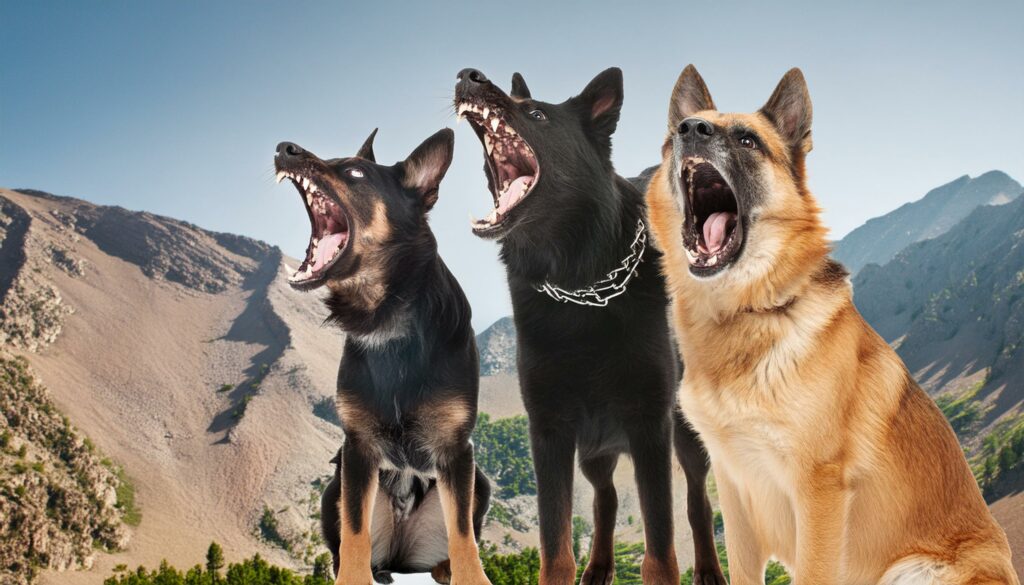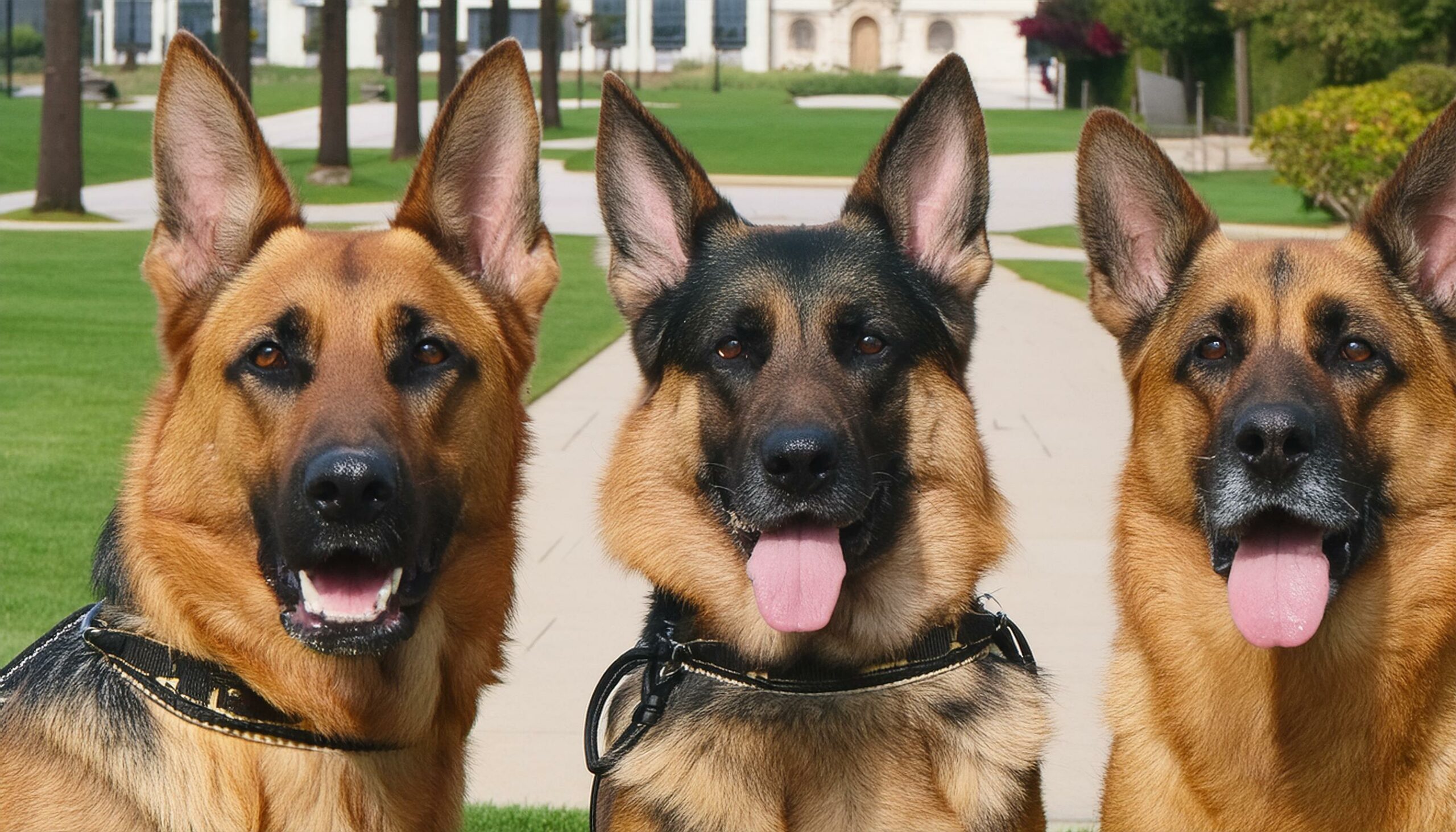German Shepherds are highly regarded for their exceptional traits and versatile capabilities. Let’s delve into the distinct qualities that define these remarkable canines.
1. Introduction to German Shepherds
German Shepherds, originally bred in Germany in the late 19th century, were initially developed for herding sheep. Over time, their intelligence, strength, and loyalty led to their widespread adoption in various roles, including police work, search and rescue missions, and as beloved family pets.
2. History and Origin
The German Shepherd breed traces its roots back to the late 1800s when Captain Max von Stephanitz sought to create the ideal herding dog. He carefully selected and bred German herding dogs with the aim of producing a versatile working breed with exceptional intelligence and physical prowess. The result was the German Shepherd we know today, a breed prized for its unmatched combination of skills and temperament.
3. Physical Characteristics
Coat and Color
German Shepherds typically have a double coat consisting of a dense undercoat and a longer, coarser outer coat. Their coat colors can vary and include black and tan, sable, solid black, or all white (though white German Shepherds are controversial within the breed standard).
Size and Build
Adult German Shepherds are medium to large-sized dogs with a strong and muscular build. Males typically stand between 24 to 26 inches tall at the shoulder and weigh between 65 to 90 pounds, while females are slightly smaller, standing 22 to 24 inches tall and weighing 50 to 70 pounds.
4. Temperament Traits
German Shepherds are renowned for their exceptional temperament, characterized by several key traits.
Intelligence
German Shepherds consistently rank among the most intelligent dog breeds. Their keen intellect and ability to learn quickly make them highly trainable for a variety of tasks. Whether it’s mastering obedience commands, participating in agility competitions, or excelling in advanced training programs, German Shepherds thrive on mental stimulation and challenges.
Loyalty
Loyalty is a defining trait of the German Shepherd breed. These dogs form strong bonds with their human families and demonstrate unwavering devotion in every aspect of their lives. Whether serving as working dogs or beloved companions, German Shepherds prioritize the well-being of their pack and will go to great lengths to protect and care for their loved ones.
Trainability
German Shepherds’ combination of intelligence, loyalty, and eagerness to please make them highly trainable dogs. They excel in obedience training and can quickly grasp and execute complex commands. Their willingness to work alongside their owners and their ability to adapt to various situations make them invaluable assets in roles such as police work, search and rescue missions, and service tasks.
5. Working Abilities

German Shepherds are renowned for their versatility and excel in a wide range of working roles.
Herding
Originally bred for herding livestock, German Shepherds possess a strong herding instinct. While modern-day German Shepherds may not be used for herding as frequently, they retain their innate herding abilities and can still excel in herding trials and competitions.
Protection
German Shepherds are naturally protective of their families and territories. Their keen senses, combined with their loyalty and courage, make them excellent guard dogs. Whether patrolling a property or accompanying their owners on walks, German Shepherds serve as formidable deterrents to potential threats.
Search and Rescue
German Shepherds are highly valued in search and rescue operations due to their keen sense of smell, agility, and trainability. They are often deployed in various disaster scenarios, including natural disasters and missing person searches, where their abilities can mean the difference between life and death.
6. Health Considerations
While generally robust and healthy, German Shepherds may be prone to certain health issues.
Common Health Issues
Some common health concerns for German Shepherds include hip and elbow dysplasia, degenerative myelopathy, bloat, and skin allergies. Responsible breeding practices, regular exercise, and routine veterinary care can help mitigate these risks and ensure a long and healthy life for your German Shepherd.
Lifespan
On average, German Shepherds have a lifespan of 9 to 13 years. Providing proper nutrition, regular exercise, and routine veterinary check-ups can help extend your German Shepherd’s lifespan and ensure their overall well-being.
7. Exercise and Care Requirements
Exercise Needs
German Shepherds are an active breed that requires regular exercise to stay healthy and happy. Daily walks, play sessions, and opportunities for mental stimulation are essential to prevent boredom and behavioral issues.
Grooming
While German Shepherds have a relatively low-maintenance coat, they do shed moderately year-round and more heavily during seasonal changes. Regular brushing can help minimize shedding and keep their coat healthy and shiny. Additionally, routine grooming tasks such as nail trimming, ear cleaning, and dental care are important for maintaining your German Shepherd’s overall health and hygiene.
8. Suitability as Pets
Family-Friendly Nature
German Shepherds are known for their gentle and affectionate nature, making them wonderful companions for families. They form strong bonds with their human pack members and are often protective of children and other pets in the household.
Compatibility with Children and Other Pets
When properly trained and socialized from an early age, German Shepherds can coexist peacefully with children and other pets. Supervision is always recommended, especially with young children, to ensure safe interactions and prevent accidental injuries.
9. Training Tips

Obedience Training
Early and consistent training is essential for German Shepherds to thrive as well-behaved companions. Positive reinforcement methods, such as rewards and praise, work best for motivating these intelligent and sensitive dogs.
Socialization
Proper socialization from a young age is crucial to help German Shepherds develop into well-adjusted and confident adults. Exposing them to various people, animals, environments, and experiences will help prevent fearfulness and aggression later in life.
10. Famous German Shepherds
Throughout history, German Shepherds have been celebrated for their remarkable abilities and contributions in various fields. Some famous German Shepherds include Rin Tin Tin, a canine actor who starred in numerous Hollywood films, and Buddy, a search and rescue dog who gained national attention for his heroic efforts during the September 11 attacks.
Conclusion
In conclusion, German Shepherds possess a unique blend of traits that make them exceptional companions and working partners. From their intelligence and loyalty to their trainability and versatility, German Shepherds continue to captivate hearts around the world with their remarkable abilities and unwavering devotion.
FAQs
Are German Shepherds good with children?
Yes, German Shepherds are known for their gentle and protective nature, making them excellent companions for children when properly trained and socialized.
Do German Shepherds require a lot of exercise?
Yes, German Shepherds are an active breed that thrives on regular exercise and mental stimulation. Daily walks, play sessions, and training activities are essential to keep them happy and healthy.
Are German Shepherds prone to any health issues?
Like all dog breeds, German Shepherds may be susceptible to certain health conditions, including hip dysplasia, elbow dysplasia, and degenerative myelopathy. Responsible breeding practices and regular veterinary care can help mitigate these risks.
Are German Shepherds aggressive?
German Shepherds are not inherently aggressive but can exhibit protective behavior if they perceive a threat to their family or territory. Proper training and socialization from an early age are crucial in shaping their temperament.
Do German Shepherds shed a lot?
Yes, German Shepherds have a dense double coat that sheds moderately year-round and more heavily during seasonal changes. Regular grooming can help manage shedding and keep their coat healthy and shiny.
